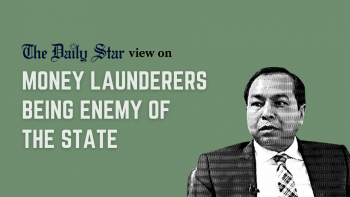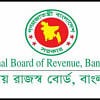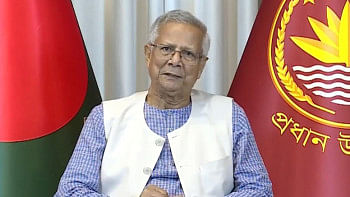There is no alternative to tightening financial regulation

The latest annual report of the Bangladesh Financial Intelligence Unit (BFIU) is a stark reminder of how the country's financial sector continues to languish in disarray, despite frequent calls over the years for ensuring discipline and strict regulation. According to the report, at least 14,106 incidents of suspicious transactions and financial activities were reported in FY2022-23, which marks a 65 percent rise from the FY2021-22 estimate. Of these reports, 91 percent came from the banks alone, and the rest from non-bank financial institutions (NBFIs), capital market intermediaries, remitters, and others.
The BFIU chief said the sharp rise in suspicious reports does not necessarily indicate a rise in irregular financial activities, but we find it hardly convincing, especially given the frequent media coverage of illicit activities in the sector. The report also mentioned how trade-based money laundering has not seen any substantive decline because banks are reluctant to check pricing anomalies, and that 85 percent of money laundering is conducted through trading. The question is, why does this situation continue to persist?
We have known for a long time that mis-invoicing is a major avenue to syphoning money off the country, yet there have been no effective steps from the authorities to prevent it. In this regard, we want to know about the extent of the BFIU's authority as the country's anti-money laundering agency. Is it supposed to just compile reports of suspicious activities and forward them to other relevant agencies? Isn't it supposed to track all avenues of money laundering and take actions accordingly? From the look of things, we cannot help but assume that either the BFIU is incapable of doing what it is supposed to do—legally and/or logistically—or its authority is deliberately curtailed. This is further reinforced by the BFIU chief's statement that strong political will is needed to deal with money laundering, particularly cases involving big names.
Money laundering has long been draining our economy, exacerbating the dollar crisis and other financial woes. We, therefore, demand proper investigation into all suspicious financial activities reported to the BFIU, and urge the government to empower the agency so that it can function as a proper financial intelligence organisation, with full independence and credibility. We also urge the government to urgently introduce necessary reform measures recommended by experts to bring discipline to the country's financial sector.


 For all latest news, follow The Daily Star's Google News channel.
For all latest news, follow The Daily Star's Google News channel. 










Comments